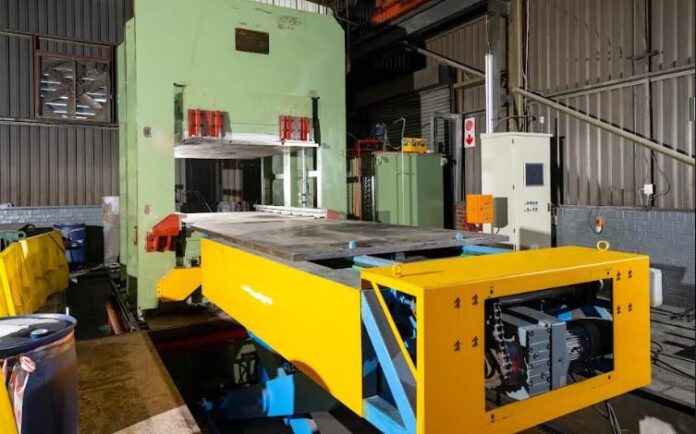Multotec has expanded its facilities and capacity of its mill lining factory in Spartan, South Africa, to meet the rising demand, enabling the company to manufacture larger mill liners for clients around the globe.
The expansion consists of the installation of three new presses at the factory that will boost manufacturing capacity by 15-20% to meet the demand for larger mill liners, as well the increasingly demand for Multotec’s new integrated mill liners that are replacing steel liners in the market.
Thando Makhoba, Managing Director – Rubber at Multotec, explains that the installation of one new press has already been completed, while the other two will be installed during August this year. The new presses enable Multotec to manufacture larger mill liners, that are between 10m and 15m in diameter, whereas previously the company focused on 3m to 7m diameter mill liners.
“Most commonly used for platinum and copper applications, the new presses are more modern and offer greater manufacturing capacity, enabling us to produce integrated mill liners – consisting of lifter bars and shell or grate plates – as one piece. Previously, these components were manufactured separately and then installed at a customer’s site, which involved a considerable amount of time,” says Makhoba.
Reduced installation time
“Because we can now produce mill liners as a single unit that is then installed at a mine, it cuts down installation time by at least 24 hours, thus reducing plant downtime and saving clients’ time and money.”
Makhoba says that the growth in demand for mill liners, which prompted the installation of the new presses, was twofold. On the one hand, Multotec benefitted from winning the business of several competitors who have either left South Africa or have scaled down their local manufacturing capacity. On the other, the company has also seen a huge increase in demand for its integrated rubber liners, which are replacing steel mill liners in the market.
Another important feature of the new presses is that they are much safer, as this modern equipment allows operators to have less physical engagement with the machine during production. “The new presses come with a digital Manufacturing Execution System (MES) enabling the operator to log in on an app and monitor what the machine is producing via live data, that shows what is being produced, whether a specific press is running or not and how much capacity a particular machine has available,” says Makhoba.
Paperless shop floor
“Because of the digital MES, there is no need to print job cards anymore, as all the specifications are displayed on the user interface. This plays well into our push towards a paperless shop floor.”
“Furthermore, as part of our commitment to continuous improvement, we have employed a specialist who is an industrial engineer and is very well versed in lean manufacturing principles. Currently, we are also looking for new production and quality engineers, who will be on the factory floor to train our operators on the new technology,” he says.
“With the installation of the new presses, our mill lining factory has become more efficient and we are able to manufacture increasingly bigger mill liners. Ultimately, we don’t provide mill liners, but rather provide solutions,” Makhoba concludes.




